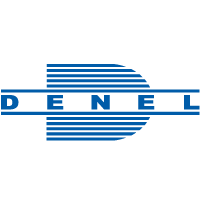Career Tips
Strategies for Building a Personalized Career Development Plan

In today’s rapidly evolving job market, it’s crucial to have a well-defined career development plan to navigate through various opportunities and challenges. A personalized career development plan not only helps you set clear goals but also enables you to identify the steps needed to achieve them. Whether you’re just starting your career or looking to make a transition, here are some strategies to consider when building a personalized career development plan.
- Self-Assessment: Begin by conducting a thorough self-assessment to understand your strengths, weaknesses, skills, and interests. Reflect on your past experiences, both personal and professional, and consider the activities that bring you joy and fulfillment. Identifying your values and passions will provide a solid foundation for shaping your career goals and aspirations.
- Set Clear Goals: Once you have a better understanding of yourself, establish clear and realistic career goals. Start by defining your long-term objectives, such as the position or industry you aspire to be in the future. Then break down these long-term goals into smaller, actionable steps that can be achieved within a specific timeframe. Setting measurable and achievable goals will help you stay motivated and focused.
- Research and Explore: Research is a crucial component of career development. Take the time to explore different industries, job roles, and opportunities available in your field of interest. Read industry publications, attend conferences or seminars, and engage with professionals in your desired field to gain insights. Consider conducting informational interviews with people already working in roles that interest you. This exploration will help you make informed decisions and identify potential career paths.
- Develop Skills: Once you have identified the skills required for your desired career path, it’s essential to bridge any gaps in your current skillset. Look for relevant training programs, certifications, or courses that can enhance your skills and knowledge. Leverage online learning platforms, workshops, or even mentorship opportunities to develop both technical and soft skills. Building a diverse skillset will not only make you a more competitive candidate but also open doors to new career opportunities.
- Networking: Networking is a powerful tool in career development. Build and maintain a strong professional network by attending industry events, joining relevant associations or groups, and engaging with professionals in your field. Networking can provide you with valuable connections, mentorship opportunities, and access to unadvertised job openings. Additionally, consider establishing an online presence through platforms like LinkedIn to showcase your skills, expertise, and professional accomplishments.
- Seek Feedback and Mentoring: Regularly seek feedback from colleagues, supervisors, or mentors to gain insights into your performance and areas for improvement. Constructive criticism can help you identify blind spots and develop professionally. Additionally, finding a mentor who can provide guidance, support, and share their experiences can be immensely beneficial in shaping your career path.
- Adaptability and Continuous Learning: In today’s rapidly changing job market, it’s essential to be adaptable and embrace lifelong learning. Stay updated with industry trends, advancements, and emerging technologies. Seek out learning opportunities that align with your career goals and be open to taking on new challenges. Developing a growth mindset will enable you to stay relevant and agile in your career journey.
- Regularly Evaluate and Adjust: Career development is an ongoing process. Regularly evaluate your progress towards your goals and make necessary adjustments along the way. Assess whether your current path aligns with your interests and aspirations. Be open to exploring new opportunities and be willing to make changes if needed. Remember, flexibility is key to navigating the ever-changing landscape of the job market.
Building a personalized career development plan requires self-reflection, research, and strategic thinking.
